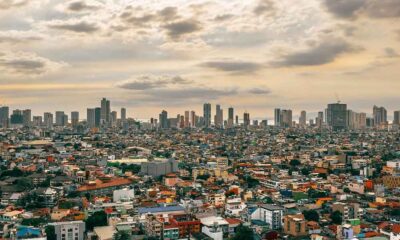News
Covid-19 Cases in Central Visayas Top 1k
The Department of Health in Central Visayas (DOH-7) has recorded 1,081 confirmed cases of the coronavirus disease 2019 (Covid-19).
Cebu City has 900 infections, the highest as of Sunday’s monitoring report.
“We have reached a milestone in the total number of Covid-19 cases in the region as we have breached the 1,000-mark. As always, context should be applied to data. The increase is expected as our contact tracing teams are working double-time to test the contacts of those previously tested positive in the community, closed settings, and in the health facilities as well as among our repatriates,” Dr. Jaime Bernadas, DOH-7 regional director, said in a statement.
Bernadas said the Vicente Sotto Memorial Medical Center sub-national laboratory (VSMMC-SNL) released 589 test results it conducted on Sunday, with 93 new positive cases.
The new infections include the 60 Covid-19 cases from the Mandaue City Jail, 25 in Cebu City, five in Lapu-Lapu City, one health worker, and two retests.
The latest report from the DOH-7 added “health workers” and “repatriates on quarantine” as separate categories, with four and 17 total confirmed cases, respectively.
“The region’s total number of deaths from those infected with Covid-19 remains at 15. The new confirmed cases have further decreased the case fatality rate or the percentage of deaths among those who are infected with Covid-19 from 1.5 percent to 1.38 percent. It is way below the global average of 6.4 percent,” Bernadas said.
The region has 29 patients listed as laboratory negative, which means that they have recovered from the disease.
Bernadas said the expansion in coverage was matched by the increasing capacity of VSMMC-SNL in testing swab samples submitted for a laboratory test.
He said the present data “paints a sobering picture”, but the increasing trend was bound to continue as they start this week the targeted, strategic community testing in the cities of Cebu, Lapu-Lapu and Mandaue as a way to gather evidence-based justification in transitioning from the enhanced community quarantine to general community quarantine (GCQ).
He, however, assured that preventive measures are implemented not only to prevent transmission of infection but to avert a sudden increase of severe cases that might overwhelm the capacity of the region’s health system.
“In epidemiology, the idea of slowing a virus’ spread so that fewer people need to seek treatment at any given time is known as ‘flattening the curve’. To ‘flatten the curve’ is our goal to keep the demand for hospital admissions low by keeping the mild and moderate cases from progressing to severe conditions,” he said.
Bernadas advised residents to continue observing social and physical distancing even as the three provinces in the region — Bohol, Negros Oriental, and Siquijor — are now on GCQ status.
“This is no time to be complacent. This is the time to strengthen our vigilance and assume that with an invisible enemy, we are all at risk,” he said. (PNA)

































